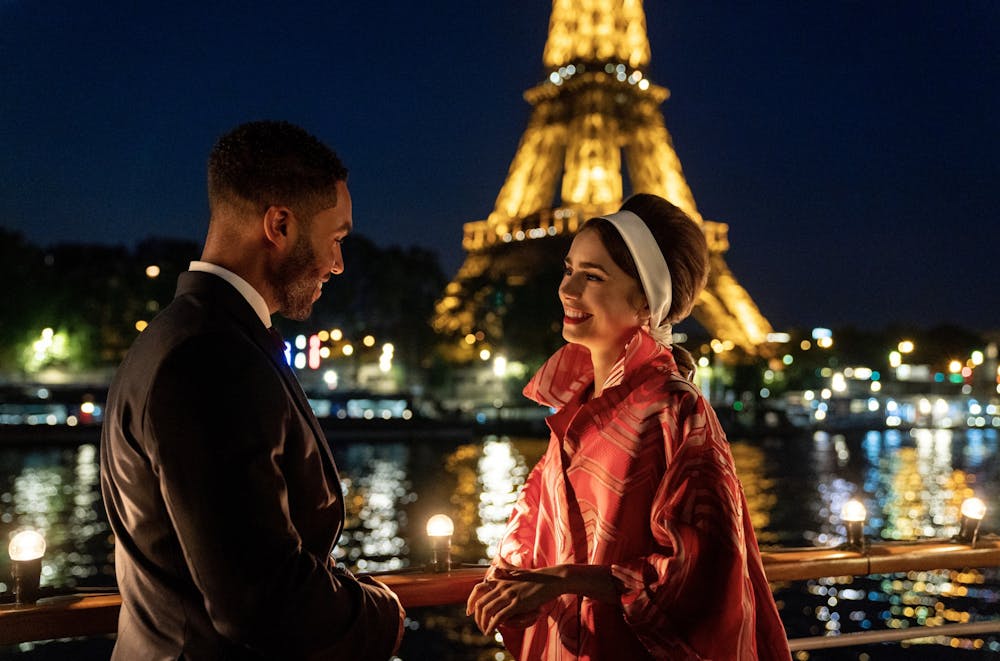“Emily in Paris” should have been comfort food. Shows like “Bridgerton,” “The Great British Bake Off” and “Ted Lasso” all serve the important function of Cinnabon television: no nutritional value, but richly deserved after a hard day’s work.
But “Emily in Paris” is too bland to be comfort food.
The title doubles as the plot — American expat Emily (Lily Collins) is in Paris. Despite having no knowledge of French or experience working in the luxury industry (she starts the series at a pharmaceutical marketing firm), Emily gets a job at the haute Parisian advertising firm Savoir for no reason other than physically being in the room while it was up for grabs. By season two, she’s living with her friend Mindy (Ashley Park), a struggling cabaret performer, who joins Emily in wearing absurdly opulent outfits once and then never again.
The greatest adversity Emily faces this season is the fallout of her mind-blowingly good sex with Gabriel (Lucas Bravo) in Season One’s finale. Gabriel is a French chef who has to check his jawline with his luggage because he can’t go through TSA with something that sharp and, of course, he’s madly in love with Emily. Tragically, the two slept together while Gabriel was still dating Emily’s close friend, Camille (Camille Razat). It's a tediously generic love triangle.
To make matters worse, these wonderful things all happen to someone utterly bankrupt of charm. Emily is an egotist cut from the same cloth as celebrities singing “Imagine.” She’s been in Paris for six months but still gets offended if anyone speaks in English around her. She never does her job, though everyone’s always talking about how hard she works. She betrays others’ trust and then doesn’t understand why she isn’t instantly forgiven. She coasts through a cotton-candy universe, letting everyone else clean up her mess.
In the season’s course of nonsensical events, Emily markets champagne that is intended to be sprayed rather than drank, starts a fashion feud over Instagram, holds a fashion show at the Palace of Versailles and shoplifts with a Ukrainian woman she meets in French class. That last escapade causes her to sit next to gorgeous Londoner Alfie (Lucien Laviscount) with whom she starts a relationship. Why does any of this happen? Because Paris!
The show follows in the footsteps of American travelogs past, wherein the only people not of the protagonist’s gender are either there to make food or be ogled. Traditionally, this has been done with a male lead — but the flattening effect this portrayal has on a female lead is much the same. The characters who surround the lead are similarly lacking in substance: The French in the show are so clichéd that at any given moment, you expect a baguette-wielding mime to show up in front of Notre-Dame.
None of this storytelling is catastrophic. It’s just militantly bland. Everyone speaks English not because the writing is somehow imperialistic, but because it just never bothers considering the world from anyone else’s point of view. The costumes are beautiful but lack any purpose and any sense of reality.
“Emily in Paris” isn’t a Cinnabon. It’s an utterly generic sugar cookie: free from salmonella, inoffensive to the local foodie, but forgotten twenty seconds after consumption. Although painfully tepid, “Emily in Paris” is for anyone who needs a sugar rush and doesn’t mind the empty calories.





